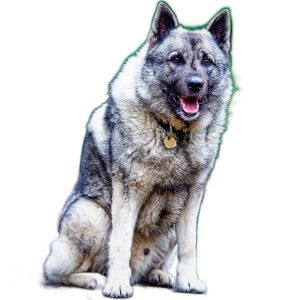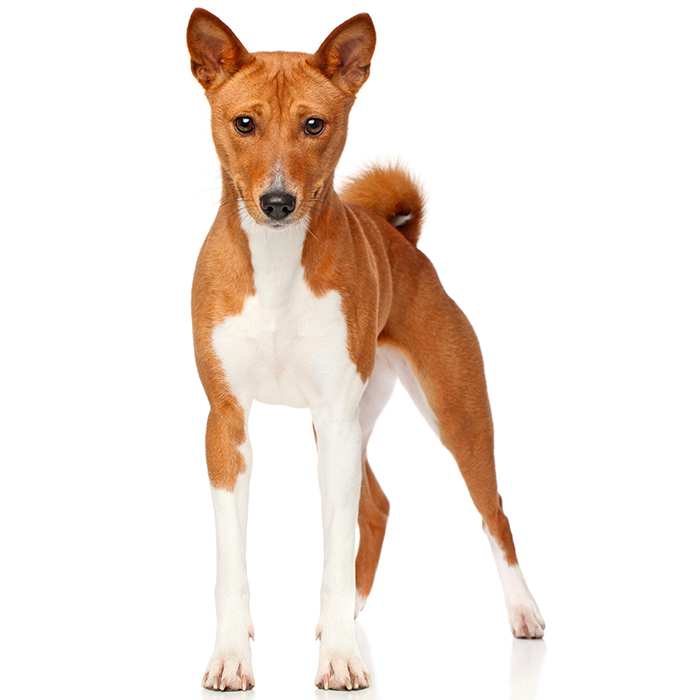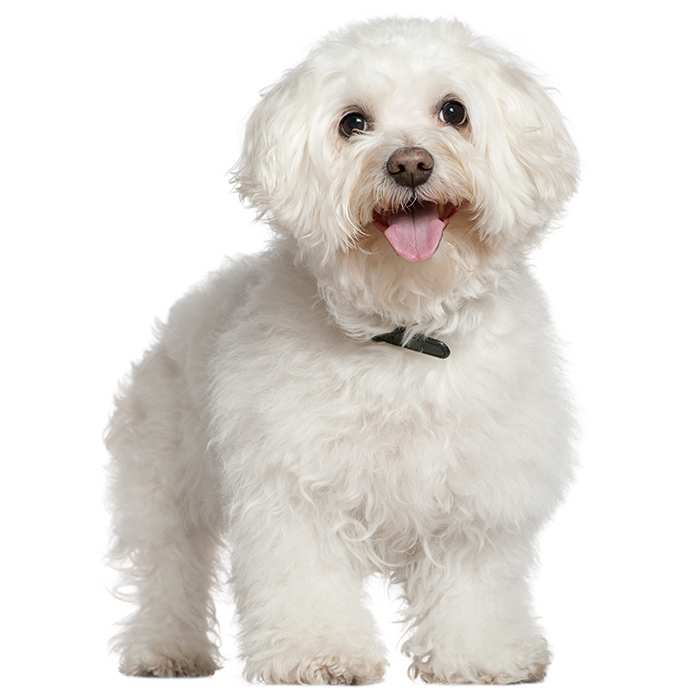Beagle
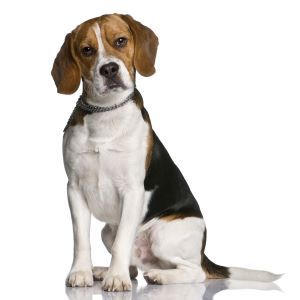

| Recommended for | Families with kids of all ages |
| Breed Classification | Hound group |
| Other names | - |
| Lifespan | 12-15 years |
| Size | Small to Medium |
| Temperament | Gentle, reliable, loyal |
| Intelligence | Average |
| Tendency to bark | High |
| Maintenance Level | Medium |
| Health Risk | This breed has an around average probability of having health issues in its lifetime, hence it is one of the more affordable breeds to insure. |
Insuring a Beagle?
Get award-winning cover with more benefits and up to 80% of eligible vet bills reimbursed. Find out about your cover options.
Get a quick quote
Is this breed right for you?
Try our breed selector quiz to find out your best matching breed!
Insuring a Beagle?
Get award-winning cover with more benefits and up to 80% of eligible vet bills reimbursed. Find out about your cover options.
Get a quick quote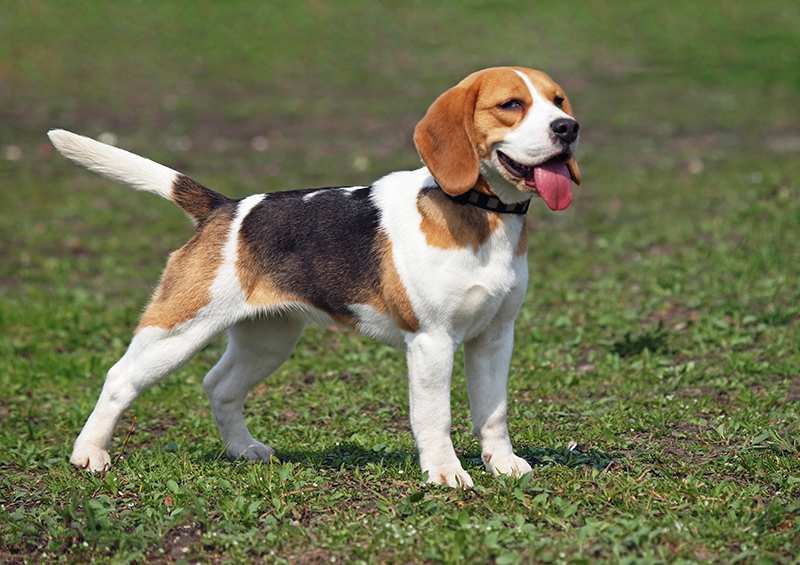
Breed history of Beagles
Modern Beagles have their roots in Essex, England in the 1830’s, where they were bred by Reverend Phillip Honeywood, primarily for the purpose of tracking game. A mix of a number of different breeds, including the Southern Hound, the North Country Beagle and the Talbot Hound, Beagles excelled as trackers because they have a great nose for sniffing out rabbits, hares and deer.
The small Beagle proved to be a great hunting companion for older hunters who couldn’t necessarily keep up with larger dogs, and for poorer hunters who couldn’t afford the most athletic horses. It was known as a ‘foothound’ because a hunter with a pack of Beagles could pursue game on foot, without the need for a horse at all.
Imported Beagles began arriving in America in the years after the Civil War, and their popularity among rabbit hunters in that country was immediate. Hunting hare with Beagles became known as beagling. This ‘sport’ was popular in the United States as well as Britain, only becoming illegal in England as late as the year 2004.
Beagles have long been much more popular in the United States and Canada than in their original homeland, and for the past 30 years they have featured in the top 10 most popular breeds in America. Nowadays they are often utilised by security and police forces to sniff out contraband and serve all over the world in this role.
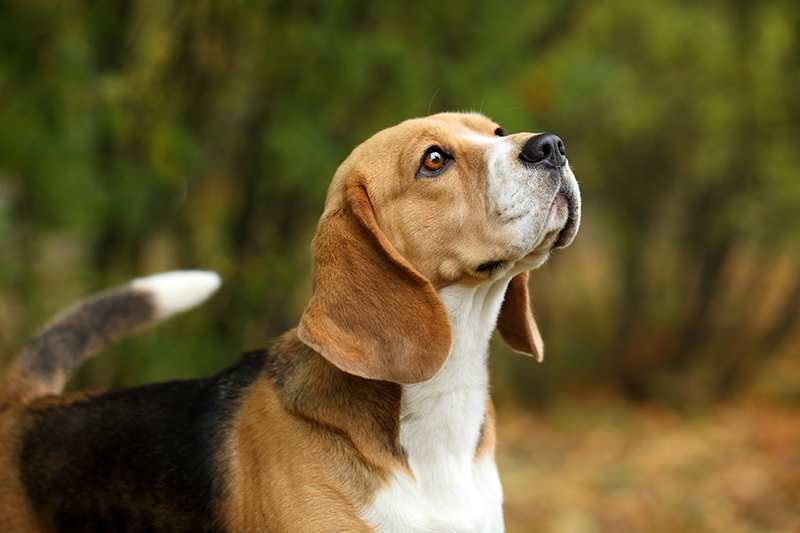
Physical description of Beagles
Similar in appearance to the larger Foxhound, Beagles are sturdy, solid and big for their height.
They have long, ‘houndy’ ears set low on a broad head, and an adorable face featuring large brown eyes and a pleading expression.
Their coats come in a wide range of colours and combinations.
| Weight range | 8 - 14 kg |
| Height range | 33 to 41 cm |
| Colours | Many colours including black, tan, white, blue, brown, lemon, red, in all combinations |
| Coat length | Short |
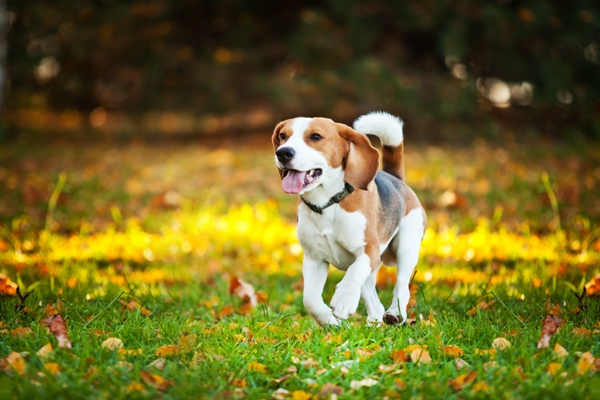
Beagle personality and temperament
Beagles are famously gentle animals, loving, lovable, loyal and an all round great companion. Known as the even-tempered dog, the Beagle is a very popular choice for many older pet lovers and young families because of their reliable nature.
As very sociable dogs, they need a generous amount of human contact to remain happy. They love to cuddle and to snuggle up on their beds inside the house at night. When left alone they are prone to howling and suffering from separation anxiety.
Beagles are happy dogs with a good sense of humour, but be aware, they are curious and can be distracted easily. Their superior nose can often lead them astray when not supervised. Although shy with new faces, Beagles aren’t aggressive with strangers and once time is spent with them, they are usually won over very quickly.
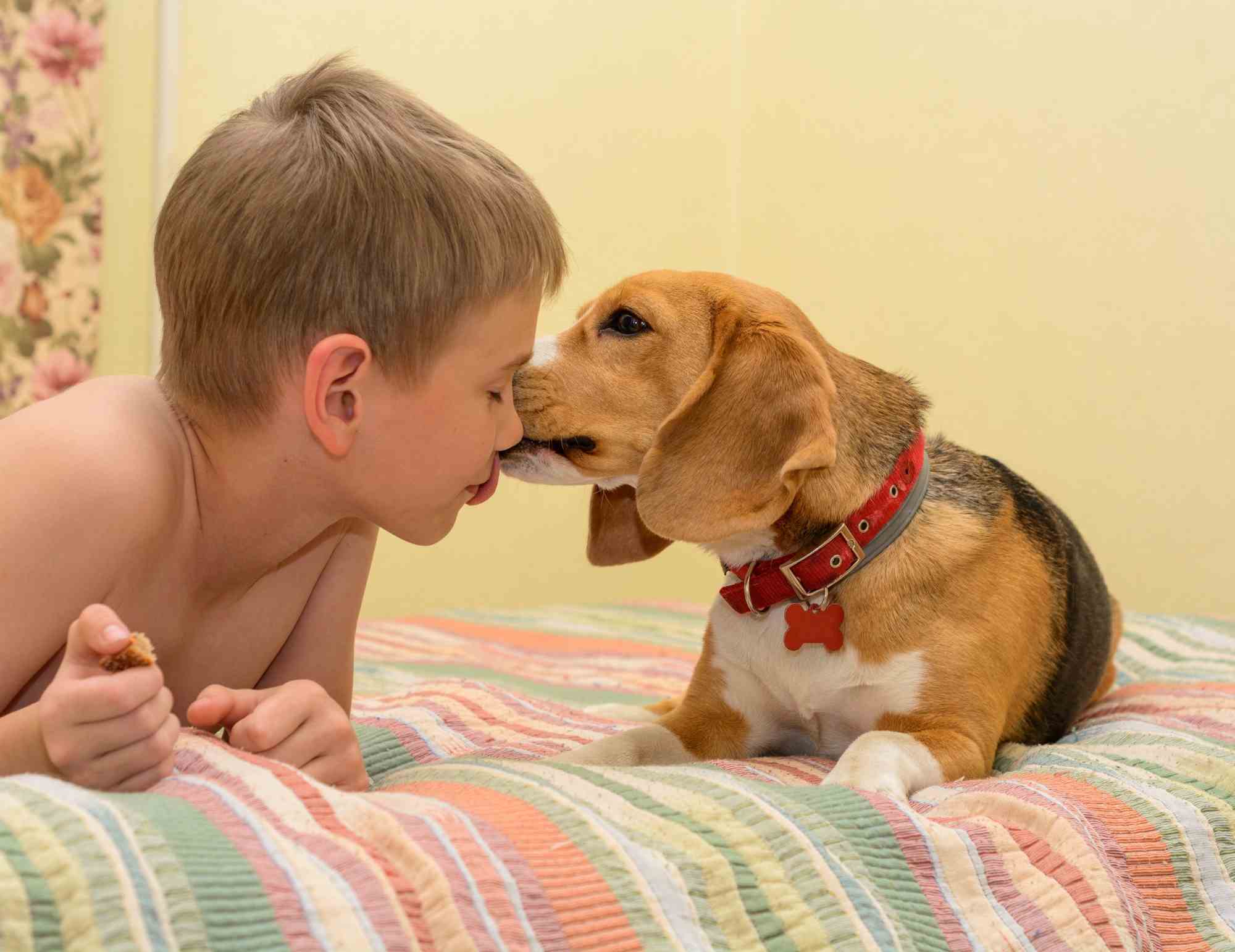
Beagles with kids and other pets
Beagles are excellent with both kids and other pets. They were bred to hunt in packs, so they enjoy company and are generally easy-going.
Their reliable and docile nature has made them a popular choice for families with small children. They love a large pack and will use any opportunity to join in with the kids’ play.
They will generally get along well with other dogs in the home but early socialising is a good idea to avoid any issues down the track.
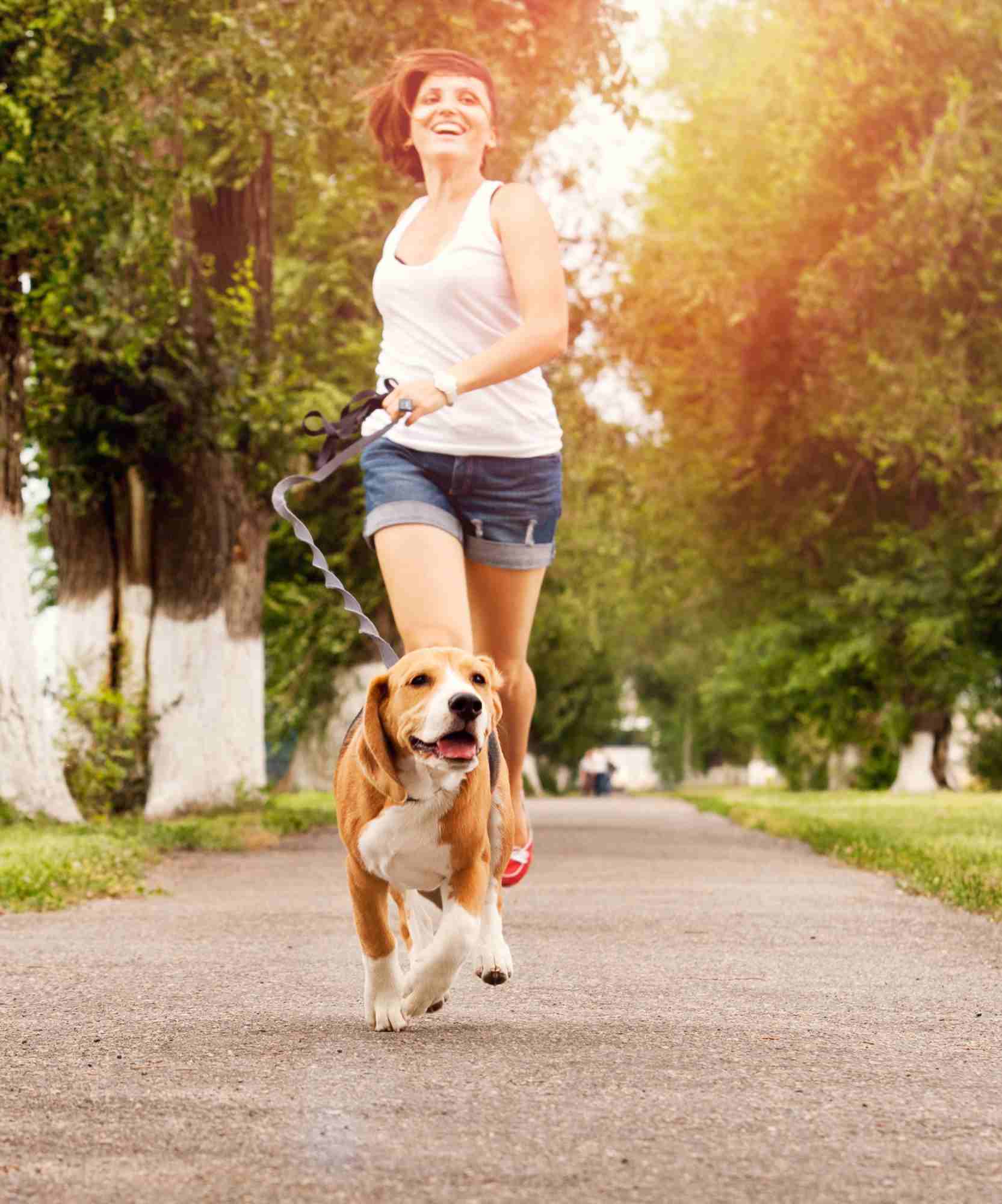
Beagle training and exercise
As hunting dogs, Beagles are an active and energetic breed, so it’s a good idea to walk them as often as possible – once or twice a day is great, with some longer walks or runs thrown into the mix. Note that their superior sense of smell can lead to all sorts of distractions while walking down the street or at the park, so keeping them on-leash, along with careful supervision, is a must.
Beagles enjoy having a job to do, like playing with the kids or ‘protecting’ them. Without an activity, they are likely to get bored and may become destructive, so stimulation in the form of play time and regular exercise is essential.
Their distractibility and their single-mindedness can cause them to be difficult to train. They are eager to please their owners, however, and food-reward style training often proves to be the best route, along with lots of patience and praise.
| Energy level | High |
| Exercise requirements | High |
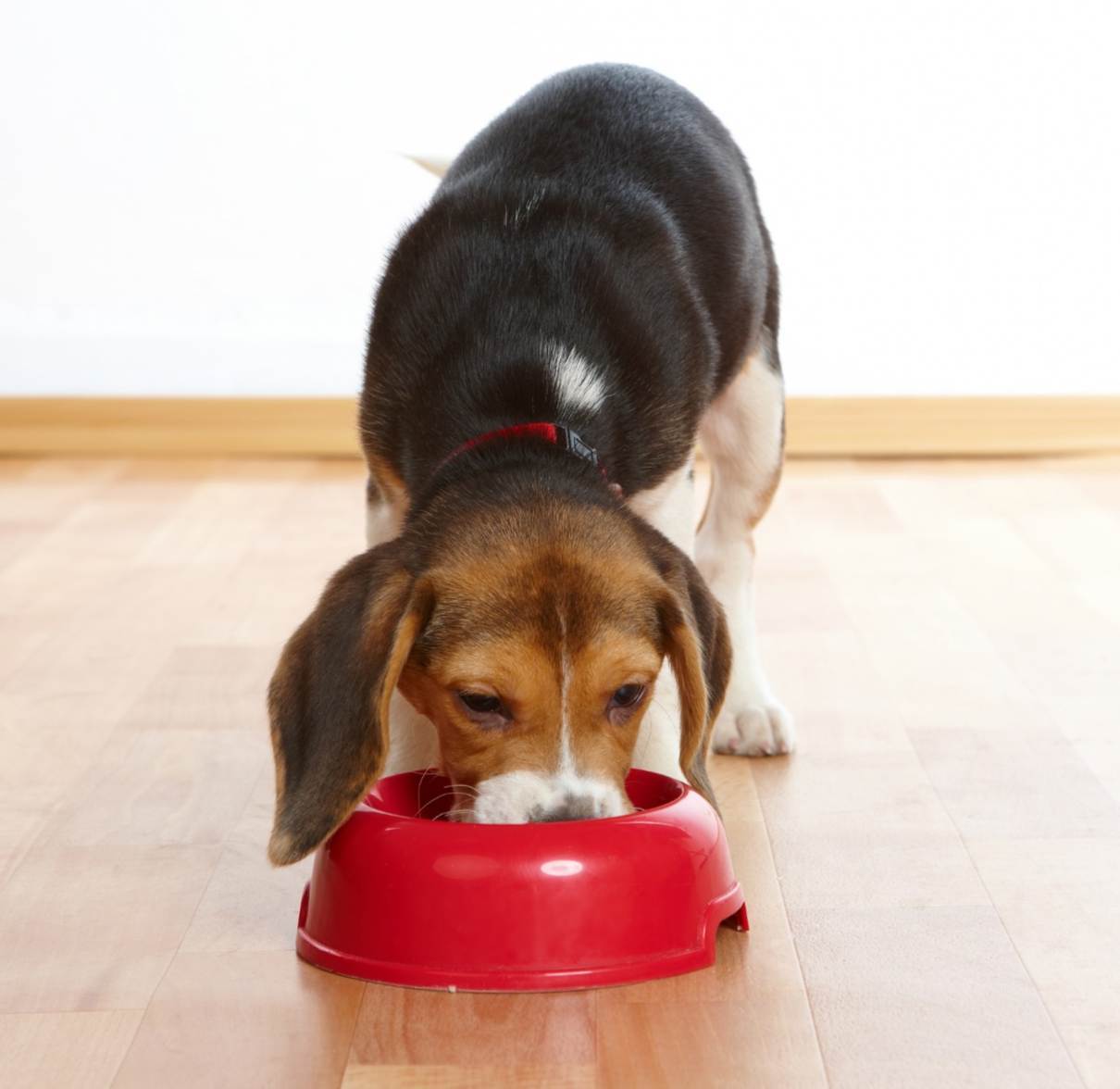
Beagle feeding and nutrition
The Beagle should do well on a high-quality dog food appropriate to the dog’s age (puppy, adult, or senior) and activity level.
Note also that the breed is prone to weight problems, particularly if not given enough exercise. They tend to want to eat anything that comes into sight.
Monitor your dog’s calorie consumption and weight level. Be aware that while treats can be an important aid in training, giving too many can contribute to weight gain and obesity.
Check with your vet if you have any concerns about your dog’s weight or diet.
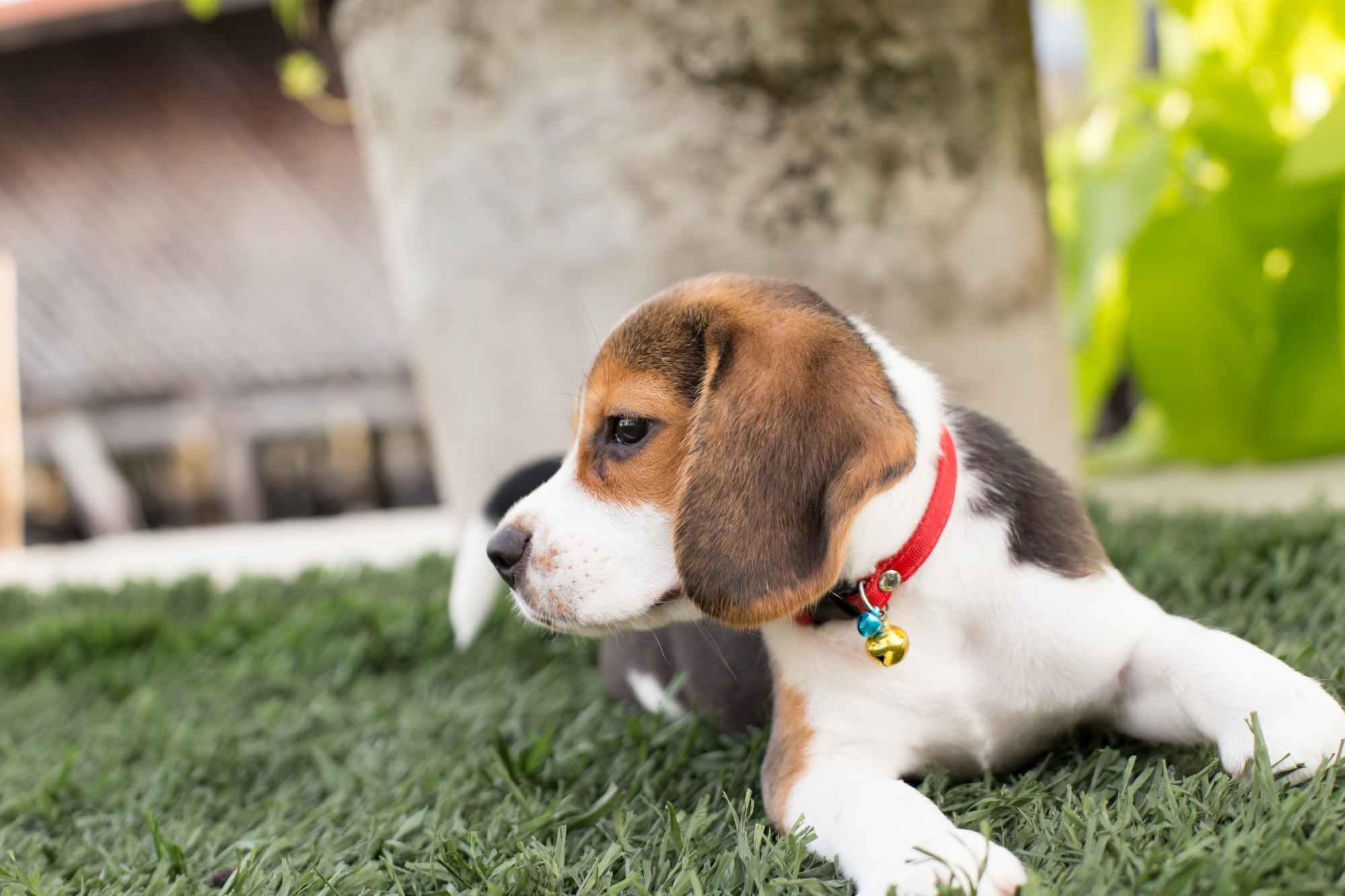
Beagle care and grooming
The Beagle has a smooth, dense double coat that gets heavier in the winter, so heavy shedding occurs in spring. They also shed moderately year-round.
Weekly brushing with a medium-bristle brush, a rubber grooming mitt or tool, or a hound glove will remove the loose hair and promote new hair growth.
Unless they happen to get into something particularly messy, Beagles don’t need to be bathed too often.
Health issues for Beagles
Health issues are low but Beagles are prone to eye and ear infections. Other conditions that can occur in the breed include:
- Epilepsy is the most common neurological disorder seen in dogs. Symptoms can include collapsing, jerking, stiffening, muscle twitching, loss of consciousness and drooling. As in humans, epilepsy can usually be controlled through the careful use of proscribed medication. If your dog is having recurrent episodes, it’s important to make an appointment with your vet as soon as possible for observation.
- Hypothyroidism is when the thyroid gland doesn’t produce adequate amounts of thyroid hormone, usually because of inflammation. Some symptoms of hypothyroidism include abnormal weight gain, dry skin, hair loss, ear infections, and lethargic behaviour.
- Intervertebral Disc Disease is a condition that occurs when the disc between the vertebrae becomes damaged, causing swelling and leaking. Common symptoms include inactivity or lethargic behaviour, shivering, limping, or the inability to bend down to eat. If you notice these behaviours, get in touch with your vet.

- Pannus is is a potentially blinding disease affecting the cornea of the eye and characterised by the abnormal growth of tissue over the cornea. It is thought to be a hereditary condition that develops as the pet ages. The condition can lead to blindness if not treated.
- Immune Mediated Polygenic Arthritis is rare, but can affect old and young Beagles alike. It occurs when the immune system attacks the joints and can cause stiffness and pain. Keep an eye out for symptoms such as limping, lack of joint movement, more lethargic behaviour. The treatment is usually a good dose of steroids and some rest.
Not all conditions are covered by Pet Insurance. For details of Bow Wow Meow Pet Insurance cover, refer to the Product Disclosure Statement.
What do Beagle owners claim for the most?
- Otitis Externa
- Mass Lesion
- Cruciate Disease
- Skin Allergy
- Seizure Disorder
Thinking about insuring a Beagle
Thinking about insuring a Beagle
Learn moreThinking about insuring a Beagle
Learn moreFree engraved pet ID tag on sign up3
Customer Satisfaction
21 day cooling off
Easy to use Pet Portal

GapOnly® in vet claims
MORE INFORMATION
Oz Beagles: http://www.ozbeagles.org/
Beagle Club of QLD: http://www.beagleclubqld.org/
Beagle Club VIC: http://beagleclubvictoria.com/
Beagle Club of SA: http://www.beagleclubofsa.com.au/
Beagle Freedom Australia: http://beaglefreedomaustralia.org/
Beagle Rescue NSW: http://www.beaglerescuensw.org.au/
Beagle Rescue QLD: https://www.beaglerescueqld.com.au/
Beagle Rescue VIC: http://www.beaglerescuevic.org/

